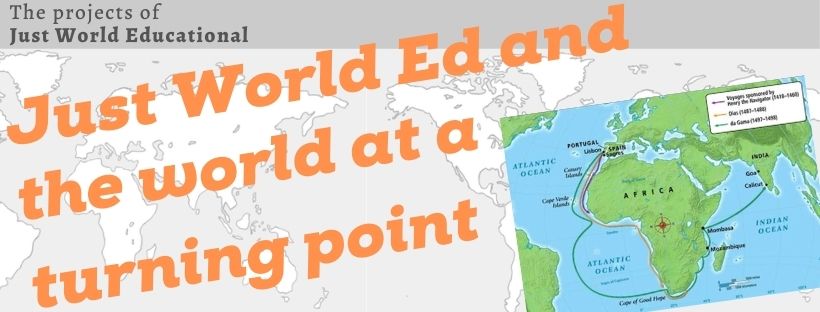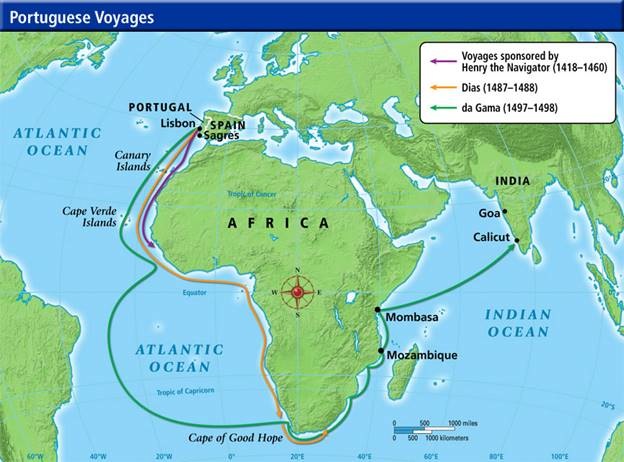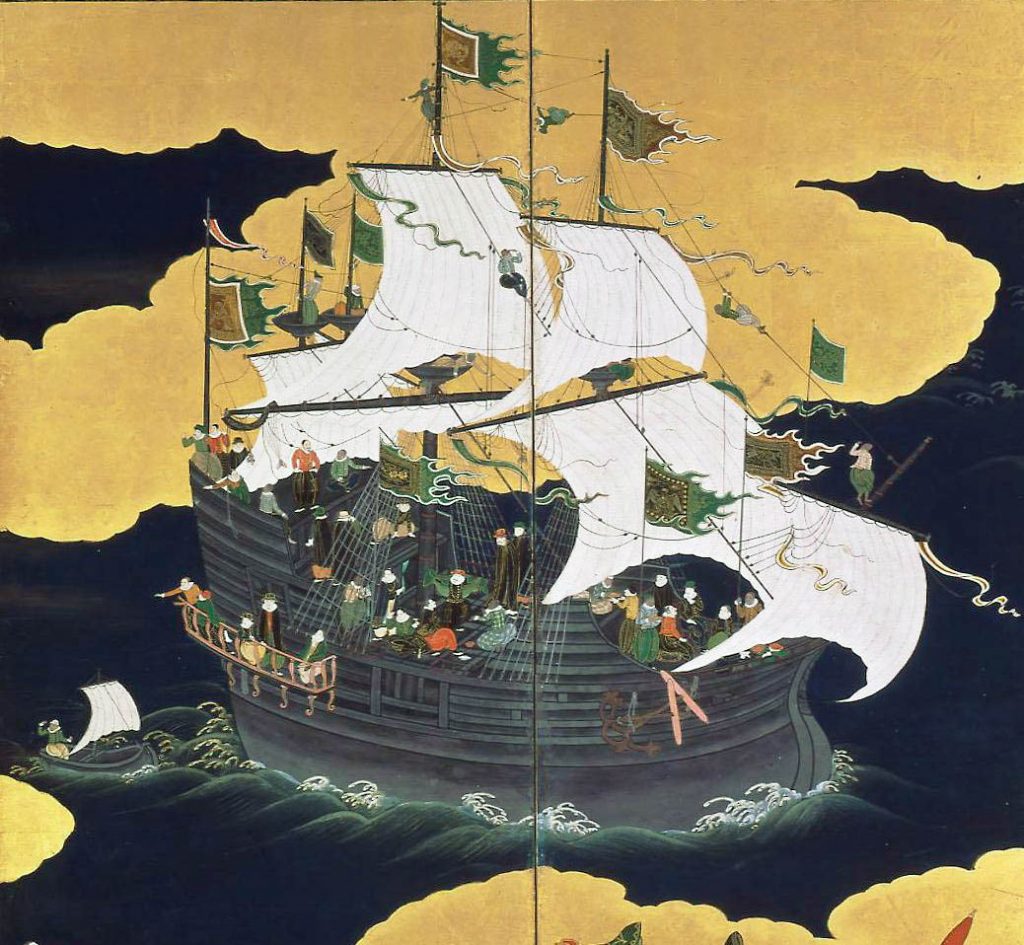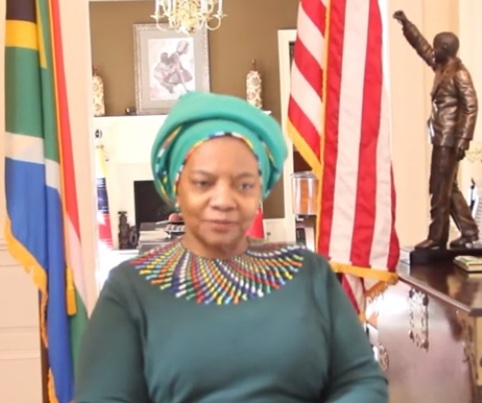Humankind’s Covid-19 crisis is now entering its third year. Every nation on this planet has been drastically affected by it– at a time when nearly everyone around the world has also become deeply aware of the dire effects for us all of anthropogenic climate change. And to increasing numbers of people here in the United States, our leaders’ past, extravagantly funded use of military power to effect regime change in distant portions of the globe– whether in Afghanistan, Libya, or Syria– seems to have shown its limits, leaving in its wake only humanitarian catastrophe and societal collapse.
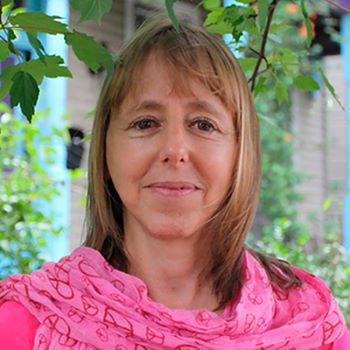
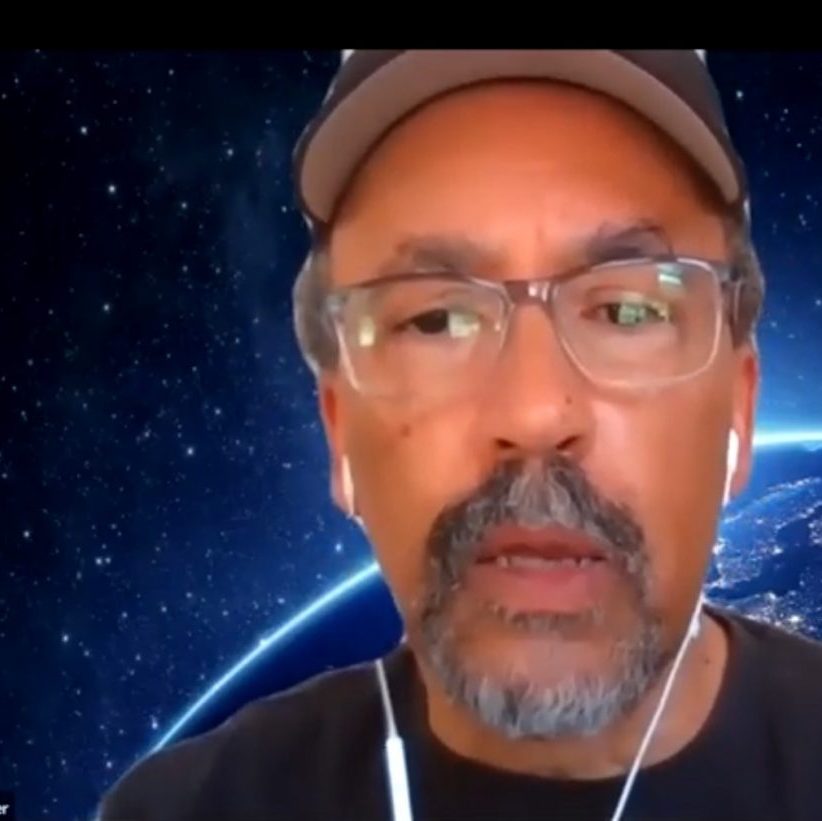
Just World Educational is a tiny organization. But we have worked to stay abreast of these big currents in world affairs and in some cases I believe we have led the way with visionary new thinking. I’m thinking particularly of the webinar series “The World After Covid” that we ran in June and July of 2020, in which big thinkers like Richard Falk, Medea Benjamin, Bill Fletcher, Jr, and Vijay Prashad joined me to explore the kinds of changes the present era was experiencing. We created this online learning hub where you can view the archived videos of those sessions, or just dive into the transcripts, as you prefer.
It is clear that today, as we enter Covid’s third year, we are not yet nearly in a “World After Covid”. A more accurate description for what we were exploring in 2020 would be “The World After the Onset of Covid”. But it is also clear that the onset of Covid marked humankind’s entry into a significant inflection point in the global balance– one that we are still living through.
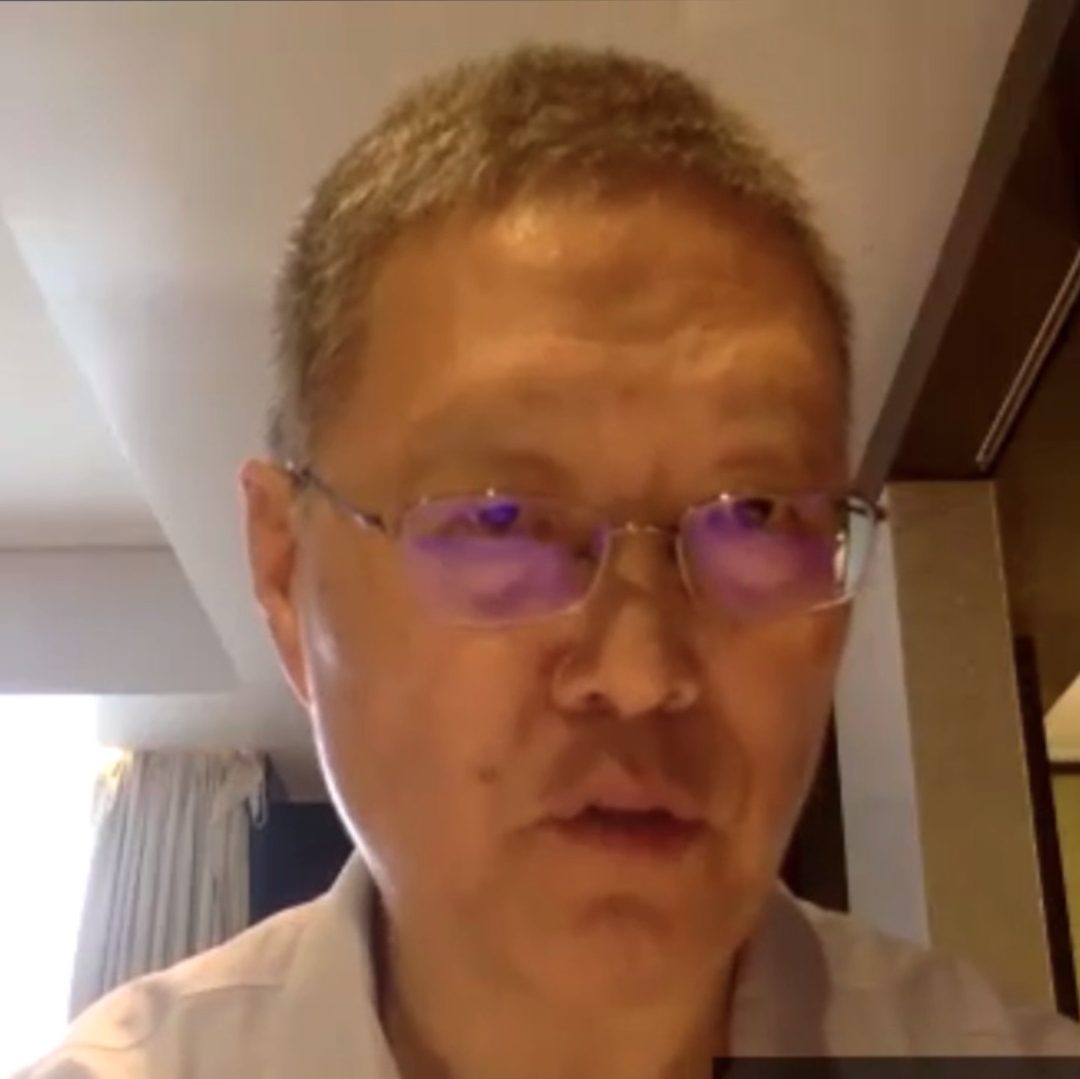
Our mid-2020 explorations at that “big-picture” level led to two offshoots. In one offshoot, which was timed to air in the weeks leading up to the U.S. election of November 2020, we worked with the Chongyang Institute for Financial Studies at Renmin University in Beijing to present a groundbreaking public dialogue between U.S. and Chinese experts on issues of great concern in the two countries’ relations, in both the economic and the security field. You can see the online learning hub we created from that project, here.
The other offshoot from our “World After Covid” deliberations was one that started out as a more personal quest for me. Since we seemed clearly to be coming to the end of the long era in which a handful of “Western” or West-European-origined nations had been able to dominate all of global politics, I wanted to dig more deeply into the conundrum of how (and why) it was that that domination had been established in the first place.
I launched my research on this question last January 1. Pretty rapidly I realized I needed to go back not just to the notorious voyage of 1492 in which Christopher Columbus “discovered” the Americas (while believing he had actually made it to Asia), but to 1415 CE. That was the year in which a royal-led expedition from tiny Portugal established a first colonial foothold in northwest Africa from which subsequent expeditionary forces then established a string of armed trading posts all around West Africa and down to the continent’s southernmost tip, where they arrived even before Columbus’s first voyage of 1492.
The use by West European powers of raw military might to force punitive trading terms onto the peoples of the Global South can thus be dated back to 1415… And one of the first “commodities” the Portuguese were exporting from West Africa in the 15th century was enslaved persons, who were shipped to plantations the Portuguese had established in various Atlantic island chains, and also back to Europe.
Portugal, Spain, and later England, Netherlands, and France, were each building a form of empire the world had never seen before. These West-European powers used a combination of naval might and very heavy gunnery to force their will onto the peoples of the Global South– and also to effect the mass-scale, long-distance trans-shipment of populations on which their new empires were built. They shipped many millions of captured and enslaved Africans to the Caribbean islands and the American Main (also, in the Indian Ocean, large numbers of enslaved East Africans to plantations in Madagascar, reunion, and elsewhere.) They shipped their own colonial settlers to build “White”-dominated settlements all around the world. And when the Indigenes resisted, which nearly everywhere they did, the colonialists could round them up and ship them to a distant continent, or commit genocide and other mass atrocities against them without fearing any “blowback” against their own, very distant heartlands…
These new maritime empires were a very different breed from the many large land empires the world had seen before; and one by one the large land empires that existed in 1415 fell to the might of the European marauders.
You can read some of the early articles I wrote in this project here, here, here (a long one!), and here.
In 2021, while I was exploring those big trends in world history, my colleagues on the JWE board and I stayed faithful to our longstanding commitment to study and expose the attempts the big imperial powers have continue to make to impose their will on the “Darker Nations” (in Vijay Prashad’s notable term.) We also continued to work to identify and share key lessons from current, or recently-past, anti-colonial movements– key among them, as always, the Palestinian national movement, but also, in early 2021, South Africa’s earlier heroic anti-Apartheid struggle.
I was particularly pleased, in the early months of 2021, to work with South Africa’s Ambassador to the U.S., Nomaindia Mfeketo, and a number of other female veterans of her country’s anti-Apartheid struggle produce some great online resources on the little-known role that a range of women leaders and activists played in that struggle. You can access that hub here.
In mid-year, JWE worked with Laila El-Haddad and Maggie Schmitt on a wonderful continuation of our project on food sovereignty issues in Gaza and elsewhere. You can see those resources here.
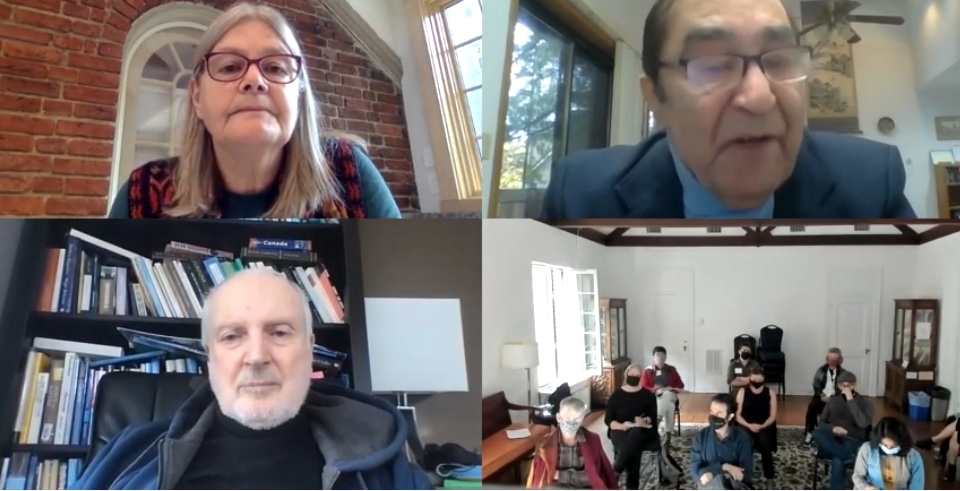
More recently, in late October, JWE partnered with the Friends Meeting of Washington to present a cutting-edge teach-in/webinar on the extreme humanitarian crisis that the United States 20 years of military aggression and occupation had left behind for Afghanistan’s 39 million people of Afghanistan. That event featured former CIA officer Graham Fuller and Afghan-American educator Dr. Zaher Wahab. It is still well worth watching! You can do so here.
… And now, what of our plans for 2022, or Covid Year 3, as we might call it?
I am still discussing our plans with our amazingly distinguished and wonderful Board. We’re considering, after two years of being at the forefront of webinar-based learning, making a shift for some period of time towards podcasts. I have been suffering from eye problems since early November– soon, hopefully, to get resolved!– but this period of being more reliant on other senses has renewed my longheld interest in producing quality audio resources.
During 2022, we will likely launch two or more discrete podcast series: one in which I share some of my explorations into the origins and meaning of West-European empire building, and one in which other Board members and I revisit some of the big-picture issues in our “World After Covid” project.
In many ways these two projects feel very complementary. We haven’t decided yet which of them to tackle first. (Stay tuned for news of that!) But whichever order we take them in, we’ll plan to build or update a broad, multimedia online learning hub on which to archive it as a continuing resource.
[Newsflash, updated December 27: We have a third possible podcast project that we’re now also considering– and it may be the one that runs first… Stay tuned!]
We remain extremely grateful to all of our supporters, listeners, commenters, and donors! Thanks to you all for being there! While we work on getting our 2022 podcast productions up and running, please continue to explore our existing Online Learning Hubs and our blog, where you’ll find a continuing stream of worthwhile articles on a range of topics. And thanks for all you do to help build a more just and peaceful world!
~HC.

